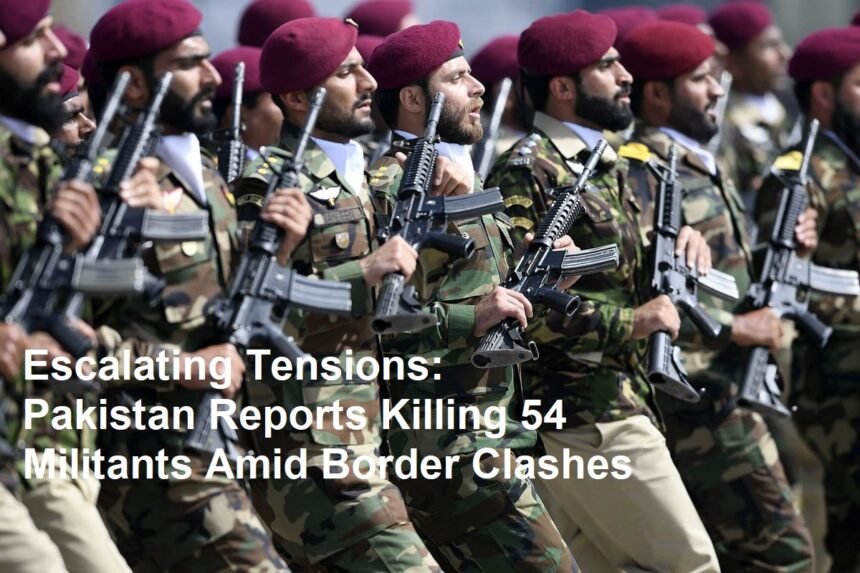Reports originating from Islamabad on April 27, 2025, paint a picture of escalating tensions along Pakistan’s western border with Afghanistan. According to news sources, Pakistani forces engaged in a significant clash that resulted in the alleged killing of 54 militants originating from Afghan territory. This incident, occurring amidst already strained relations with India, adds another layer of complexity to the geopolitical landscape of the region, raising concerns about potential instability and further conflict.
The Pakistani government claims that the militants were attempting to infiltrate Pakistan through the southwestern border regions, a volatile area historically plagued by cross-border terrorism and illicit activity. While details remain scarce, the official statement asserts that Pakistani security forces responded to the incursion, resulting in a decisive defeat of the infiltrators. However, the veracity of this claim is currently difficult to independently verify, and questions remain regarding the identity of the militants and their objectives.
The timing of this alleged incident is particularly significant. Pakistan’s relationship with India remains fraught with tension, marked by ongoing disputes over Kashmir and persistent accusations of cross-border terrorism. This latest event could potentially exacerbate existing anxieties and further complicate diplomatic efforts to de-escalate the broader regional conflict. The international community is likely to scrutinize Pakistan’s actions closely, demanding transparency and restraint in dealing with the situation.
Furthermore, the incident highlights the persistent security challenges along the Afghan-Pakistan border. Despite efforts to improve border management and combat terrorism, the porous frontier continues to serve as a conduit for militants and illegal activities. The presence of various extremist groups in the region, including remnants of the Taliban and other transnational terrorist organizations, continues to pose a significant threat to both Pakistani and Afghan security.
This incident also underscores the urgent need for enhanced cooperation between Pakistan and Afghanistan in addressing the shared threat of terrorism. While diplomatic relations between the two nations have been strained in the past, a collaborative approach is crucial to effectively dismantle terrorist networks and secure the border region. This requires a commitment to intelligence sharing, coordinated security operations, and a willingness to address the root causes of extremism within both countries.
Moving forward, a comprehensive and nuanced approach is required to prevent further escalation. Pakistan must exercise restraint in its response, ensuring that any military actions are proportionate and conducted with respect for international law. Simultaneously, Afghanistan needs to bolster its border security measures to prevent the flow of militants into Pakistan. The international community has a crucial role to play in facilitating dialogue and providing assistance to both countries in their efforts to combat terrorism and promote regional stability.
Ultimately, the alleged killing of 54 militants along the Afghan-Pakistan border serves as a stark reminder of the complex security challenges facing the region. A sustained commitment to dialogue, cooperation, and a multi-faceted approach to counter-terrorism is essential to preventing further violence and fostering a more peaceful and secure future for both Pakistan and Afghanistan. The coming weeks will be critical in determining whether this incident will contribute to further escalation or provide an opportunity for renewed efforts towards regional stability.









